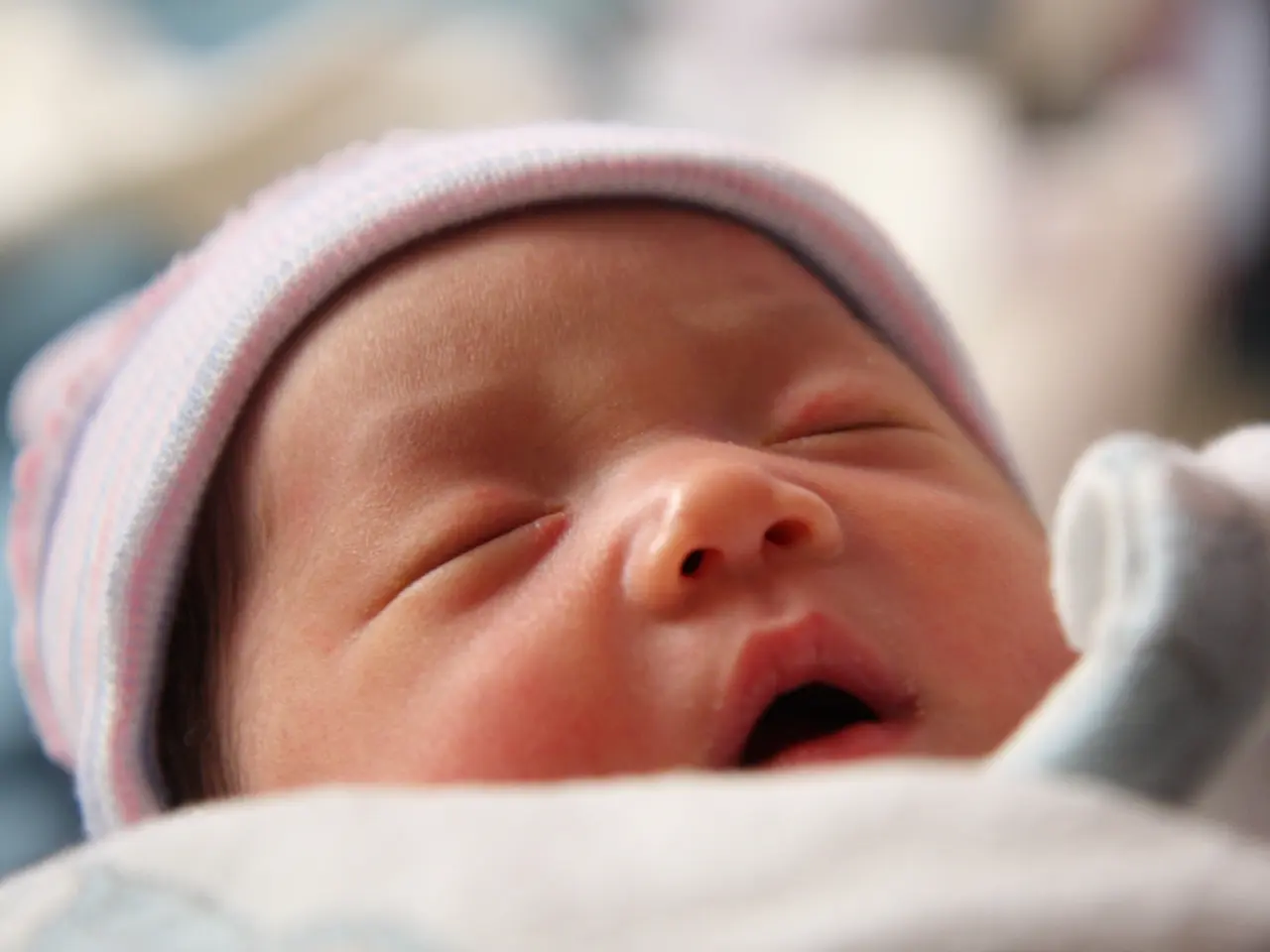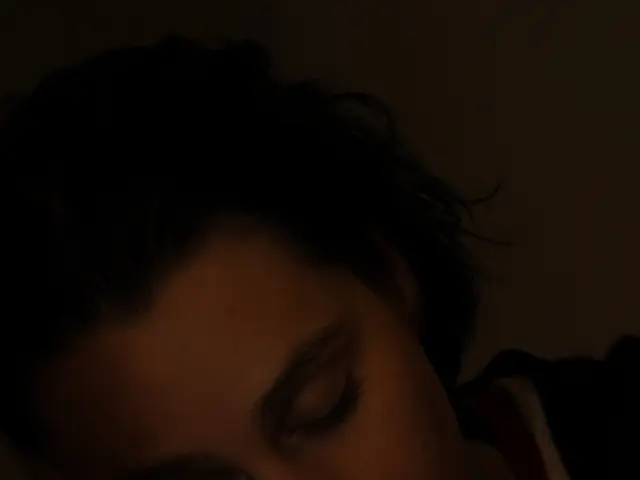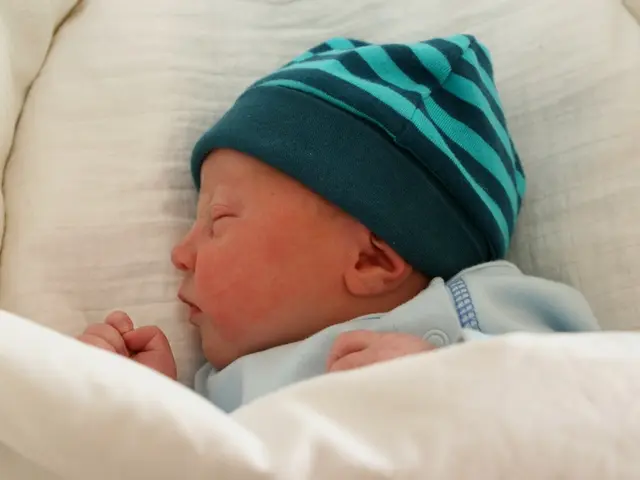The Oversleeper's Paradox: Unraveling ADHD's Slumber Struggles
Strategies for Managing Sleep Issues Arising from ADHD: Insights and Solutions
Denver (dpa/tmn) - Are you one of those folks with ADHD, struggling to catch some shut-eye? For many, sleep issues are a constant battle. Dr. William Dodson, a renowned ADHD specialist, sheds light on this perplexing conundrum in his piece on Additude.
Let's dive in and uncover the roots of this issue and find solutions to ensure you catch those Z's.
The Brain's High-Octane Engine Revving All Night Long
Individuals with ADHD often have super-charged brains. Despite the need for rest, these brains remain in overdrive, even during sleep. According to Dodson, who's spent a quarter of a century treating adult ADHD, around three-quarters of them struggle to shut off their minds to catch some much-needed sleep at night.
But it's not just the inability to snooze. ADHD sleep is usually restless, leaving individuals feeling rundown instead of rejuvenated upon waking.
Some even find themselves sinking into a "death-like slumber" that is exceptionally hard to rouse, while others experience unusually deep sleep during the morning hours.
Why does this happen? Dodson offers two hypotheses:
- It could all be linked to ADHD itself. It's simple, really: sleep disturbances stem straight from the disorder.
- Another theory suggests that people with ADHD have an altered sense of time. For these folks, there's only "now" and "not now." In contrast, a neurotypical person's internal clock is rock-solid.
These sleep issues can compound ADHD symptoms, further depleting energy reserves due to interrupted rest. So how can we fix this?
Sleep: Still Within Our Grasp
The foundation for better sleep lies in improving sleep hygiene—optimizing all factors conducive to quality rest. Dodson advocates adhering to standard advice first:
- Reserve your bed for sleep and intimacy, not work, arguments, or worrying.
- Stick to a strict bedtime routine, every day, including weekends.
- Avoid daytime naps if possible.
However, two factors specific to ADHD play a significant role in sleep hygiene:
- Despite the allure of late-night creative spurts, commit to hitting the sack even when it's tough. Many with ADHD are at their highest productivity and clearest thinking late at night, a reality that often contradicts work and family schedules.
- Avoid stimulants, especially caffeine, in the evening. Caffeine can exacerbate the ADHD brain's already heightened activity, making sleep even more elusive. Additionally, it has a mild diuretic effect, leading to nighttime bathroom breaks that disrupt sleep.
Some outdoor activities and exercise can also improve sleep quality.
Remember, tackling ADHD-related sleep issues is a challenging journey requiring patience and persistence. Yet with the right strategies, you can significantly enhance your sleep quality and, in turn, reduce ADHD-related symptoms and boost your overall quality of life.
Leading insomnia tips tailored to ADHD sleep paradoxes:
- Establish Consistent Sleep Routines - Set fixed bedtimes and wake times every day, even on weekends. Maintain a bedtime routine that winds you down.
- Limit Screen Exposure Before Bed - Reduce electronic device usage at least an hour before bedtime to minimize blue light exposure that disrupts melatonin production.
- Create a Sleep-Conducive Environment - Make your bedroom cool, dark, and quiet. Use the bed only for sleep to reinforce its association with rest.
- Manage Stimulating Substances - Limit consumption of caffeine, alcohol, and heavy meals before bedtime.
- Address Daytime Behaviors - Opt for daytime naps if possible, and incorporate breaks and relaxation periods into your daily routine to reduce the desire to procrastinate sleep at night.
- Behavioral and Therapeutic Support - Consider cognitive-behavioral therapy for insomnia (CBT-I) designed for ADHD, as well as collaboration among psychiatrists, sleep specialists, and primary care providers for co-existing sleep disorders or severe symptoms.
By employing these tailored strategies, you can conquer your ADHD-related sleep issues and enjoy a better life.
[1] Czitrowszky, E., & Kessler, R. (2019). Sleep an overview for primary care physicians: discussion of the AHA evidence‐based recommendations for adults and children. Mayo Clinic proceedings, 94(Suppl_15), S1141-S1147.
[2] Sveticic, J., Mancini, R., Caruhapich, M., & Irwin, M. R. (2020). Sleep disturbances in adults with attention-deficit/hyperactivity disorder. Sleep Medicine Reviews, 53, 84-95.
[3] Barnes, C.A., Buysse, D. J., Carrive, P.E., Dame, J.J., Doghramji, K., Lichstein, K., Moore, M.R., Walsh, J.K., & Zuber, O.A. (2007). American Academy of Sleep Medicine Position Statement on the evaluation, treatment, and management of chronic insomnia in adults. Sleep, 30, 985-994.
[4] Monk, T. H., & Baxter, D. L. (2016). The biology of timekeeping: circadian rhythms and sleep. Physiology, 31(2), 94-104.
[5] Johnson, J. J. (2005). Fighting sleep: caffeine, sleep, and the human circadian system. Journal of Sleep Research, 14, 121-131.
Individuals with ADHD often experience sleep disturbances due to their supercharged brains remaining active even during sleep, leaving them feeling rundown rather than rejuvenated. To improve sleep quality, it is important to establish consistent sleep routines, limit screen exposure before bedtime, create a sleep-conducive environment, manage stimulating substances, and consider behavioral and therapeutic support. Improving sleep hygiene can help reduce ADHD-related symptoms and boost mental health and overall health-and-wellness.








